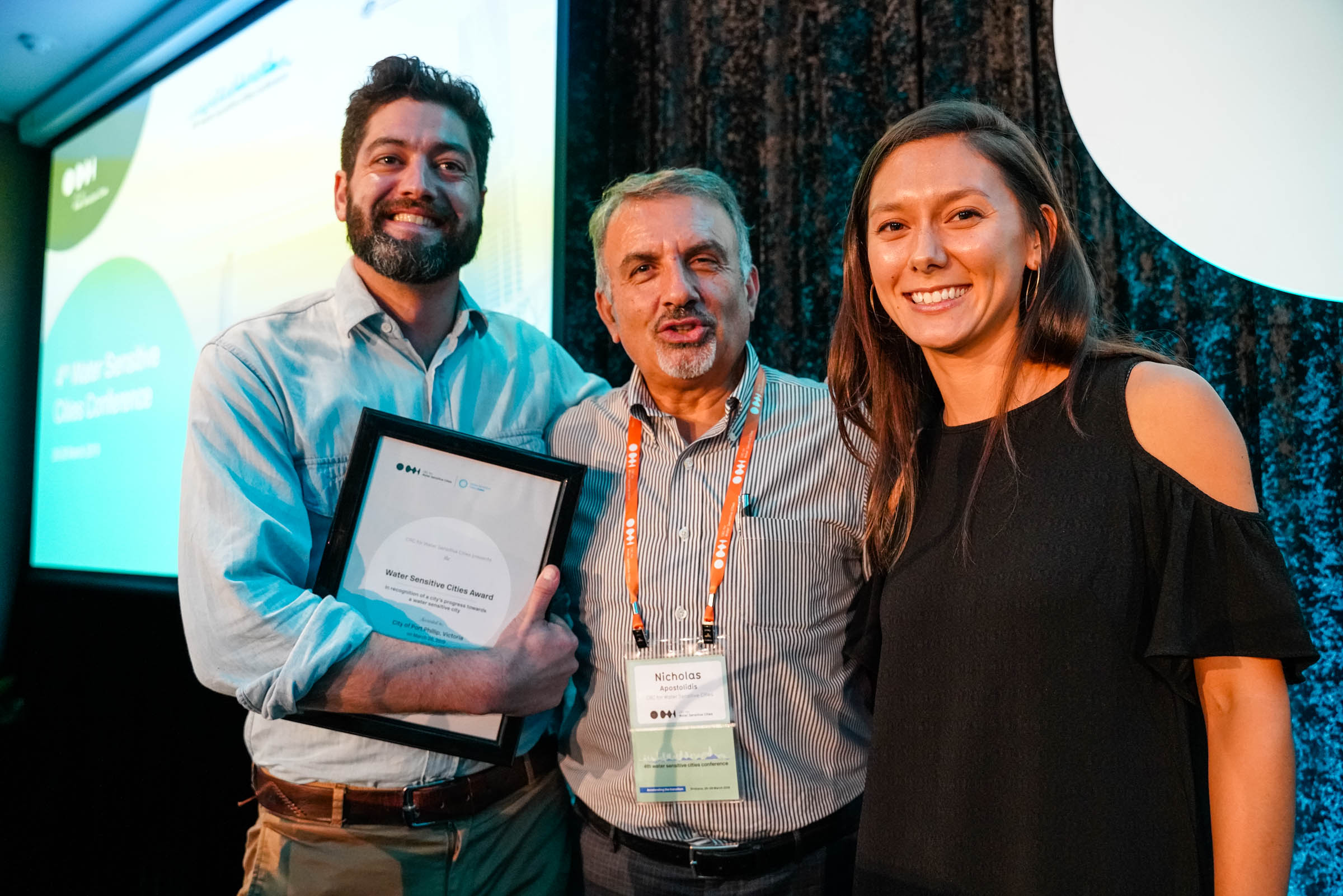The City of Port Phillip receives inaugural Water Sensitive Cities Award
The City of Port Phillip in Victoria received the inaugural Water Sensitive Cities Award during our 4th Water Sensitive Cities Conference in Brisbane in March.

The award recognises and encourages application of water sensitive principles on the ground.
Aidan O’Neill, Head of Fishermans Bend Strategy at the City of Port Phillip, accepted the award on behalf of the council.
The Water Sensitive Cities Award is based on results of a recent application of the CRCWSC’s Water Sensitive Cities (WSC) Index, a tool for benchmarking cities, towns and regions against 34 indicators that characterise a water sensitive city.
In the City of Port Phillip, the goal of applying the WSC Index was to understand how far towards a water sensitive city the City is now, and to also share knowledge among council staff and external stakeholders.
The City’s strong benchmarking result, which led to the award, is largely attributed to high scores in five of the seven water sensitive goals:
- improve productivity and resource efficiency
- achieve equity of essential services
- increase community capital
- ensure good water sensitive governance
- promote adaptive infrastructure.
The City of Port Phillip is located in Melbourne, beside Port Phillip Bay and at the mouth of the Yarra River. Well known for its beaches and foreshore (particularly St Kilda Beach and Elwood Canal), it is also at the bottom of the Elster Creek Catchment, making it subject to historical flooding . Because of this unique location, the City of Port Phillip has had to manage its water in adaptive and collaborative ways to minimise the impacts of flooding and take advantage of the beautiful bayside location.
The City has a long history of working with the CRC for Water Sensitive Cities (CRCWSC), including participating in the Elwood community visioning process (Project A4.2), trialling the prototype version of the WSC Index, investigating novel economic instruments for water sensitive urban design solutions, and hosting a design exhibition drawing from the Elwood community vision. The City has also worked closely with the CRCWSC and other industry partners on developing a Water Sensitive City Strategy for the Fishermans Bend urban renewal area and as part of the Elster Creek Catchment partnership.
A valuable outcome of a WSC Index session is the opportunity to identify on-ground actions to further progress. Some proposed actions for improving the benchmark score include urban greening initiatives to improve biodiversity corridors, implementing trials and demonstrations of novel solutions to mitigate urban heat and capture stormwater runoff, and collaborating with traditional land owners to better understand Aboriginal water knowledge and values.
We congratulate the City of Port Phillip on its outstanding effort, and particularly Sam Innes (Senior Water Cycle Management Officer), who was the driving force behind benchmarking the City’s performance. We look forward to seeing the results of further action on the ground.
The WSC Index supplies reliable evidence about a city’s strengths and weaknesses for use in strategy development, seeking project prioritisation and funding or approval, and to track progress over time. You can find out more about the WSC Index here. To arrange its application to your city or town, you can contact one of our accredited providers (see below), or email wsc-index@crcwsc.com.au.